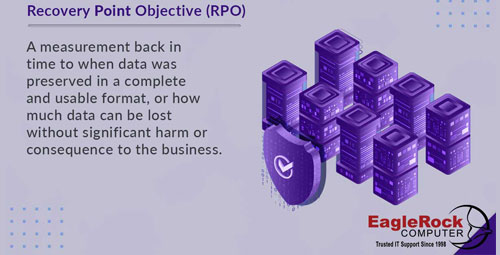Ever since the start of the COVID-19 pandemic, the concept of Disaster Recovery (DR) has received unprecedented attention. Most businesses have realized the importance of bouncing back quickly from a disruptive event. In 2020, about 80% of SMBs reported having a recovery plan in place.1 But are you sure your business’ data is 100% recoverable?
If you aren’t sure how much of your business-sensitive data is recoverable or aren’t testing your DR solution to catch issues like syncing, having a DR doesn’t make much sense. An effective DR plan must tackle a broad spectrum of threats to vital applications and systems, right from minor equipment failure to severe natural disasters.
Not having a fully and quickly recoverable environment could lead to:
- Downtime
For SMBs, per-hour downtime costs can be as high as $50,000.2
- Customer dissatisfaction
One-third of customers will end their association with a business that isn’t capable of safely handling data.3
- Regulatory penalties
Unsatisfactory data handling practices can lead to penalties worth 4% of company turnover.4
This is where the concept of recovery assurance (RA) finds its importance. Recovery assurance means sufficiently testing backups to ensure quick system recovery in the event of a cyber disruption.
7 Things to Consider When Selecting a Backup & Recovery Solution
There are many different backup offerings in the marketplace because one solution rarely meets an organization’s needs. However, the following criteria can help SMBs evaluate backup solutions:
- Hybrid storage
As most companies are currently dealing with a distributed workforce, just having an on-premise backup will not suffice. Hybrid storage that provides on-premise and cloud storage options is what businesses need.
- Recoverability
It shouldn’t be just about recovering a single deleted file but rather about quickly getting your entire business up and running following a cyber disruption event.
- Regular backup
In the digital era, businesses are constantly creating and updating data. Loss of this data can lead to severe complications beyond what many SMBs can tolerate. Hence, regular data backups are essential.
- Remote access
No one, especially after the pandemic, runs a business from one location and system. A modern backup solution must, therefore, facilitate remote access.
- Scalability
Every business wants to grow bigger at the next best opportunity. The backup solution that you use must be scalable to meet your business’s growth needs.
- Support
Your backup solution provider must provide timely assistance whenever required. If not, your business could face a hit in productivity, profits and time.
- Satisfies Security and Compliance standards
The backup solution must provide encryption of data and only authorized personnel should be able to access it. Similarly, data handling and other vital functionalities must comply with regulatory standards.
Still have questions? We can help you find and implement the right backup solution for your unique business quickly. Contact EagleRock Computer for a consultation today.
Sources:
- TechRepublic
- TechRadar
- IDC Report
- GDPR Associates
